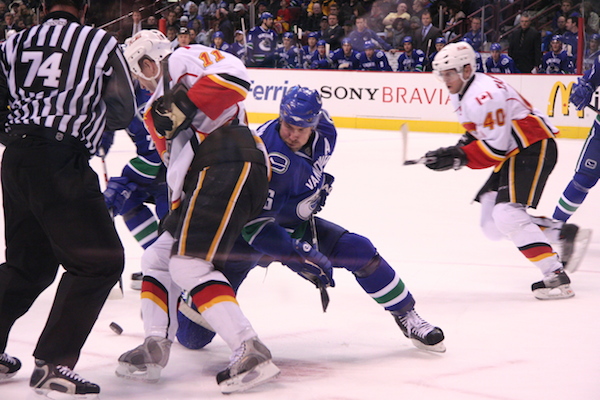Dear Sports Fan (and by that I mean Ezra),
Can you please explain the science behind sports bets? Specifically, can you explain why my team falls apart EVERY TIME I have what seems to be a reasonable bet going?
Thanks,
Angela
Dear Angela,
Thanks for your question. And thanks for making the same bet over and over again. I really enjoy the lunches that you’ve taken me to! I’ve taken the liberty of translating your question to “What is a public team in sports betting” for the purposes of the title because I think the answer will be found in that concept. First let’s do a little background on what kind of bet you’re making.
The last few years you, me, and a colleague of ours have made a bet at the start of each hockey season where we bet on our own favorite team. The way this bet works is not the obvious one — we do not bet simply that our team will win more games during the season than our opponents’ teams, we bet that our team will perform more better[1] than what is expected of it compared to how well the other teams do compared to what is expected of them. That means that if your team is expected to win 40 games and mine is only expected to win 30, I will win the bet if your team wins 39 and mine wins 31. Despite your team winning more games than mine, your team won one fewer game than expected and mine won one more.
In order to set our expectations, we use online sports books that are setting a line for the total number of points (teams get two points for a win, one point if the game is tied at the end of regulation time) a team will get during the season. As we wrote about in the lead up to the Super Bowl this year, lines are optimized not to match exactly what is going to happen but instead to attract an even amount of money on each side. For our purposes, it will mess up our bet if the sports books think they need to inflate or deflate the point total for a team away from what they think is most likely to get an even amount of money bet on both sides.
The most common scenario where this skew happens is when the significant portion of the general betting population likes to bet on a particular team. These teams are called “public” teams. Public teams tend to be very popular, well-known teams that have had a lot of success in recent years. Perhaps they are a little bit older now, or injuries have weakened them, or some other relatively subtle thing is going on, like locker room chemistry issues or contractual problems. The people who work at sports books know this but they also know that most casual bettors are likely to overrate the team’s success in past years and underrate the effect of these other factors.
This sounds a lot like your Vancouver Canucks, doesn’t it? They had come in first place of their division seven out of the last nine seasons. Their average age was in the oldest third of the league and one of their best players, Ryan Kessler, had shoulder surgery and was going to miss the first few months of the season. The team also had some unresolved issues at goalie where the long-standing starter (and star with diva tendencies), Roberto Luongo, had lost his starting job to a younger, cheaper, and better Cory Schneider. Of course, the other two teams in the bet, the Pittsburgh Penguins and the Boston Bruins, are also probably public teams to some extent. My guess is that the complete hockey mania in Canada (for evidence, recall this amazing article about water consumption during the Olympic Hockey finals in the 2010 Vancouver Olympics) is the trump card which convinces sports books to inflate their lines for your team.
Then again, it could just be a coincidence… it’s only been three years in a row and that’s an awfully small sample size. Fourth time’s a charm…
Thanks for the question,
Ezra Fischer
- Yeah, I said more better. Deal with it.↵

